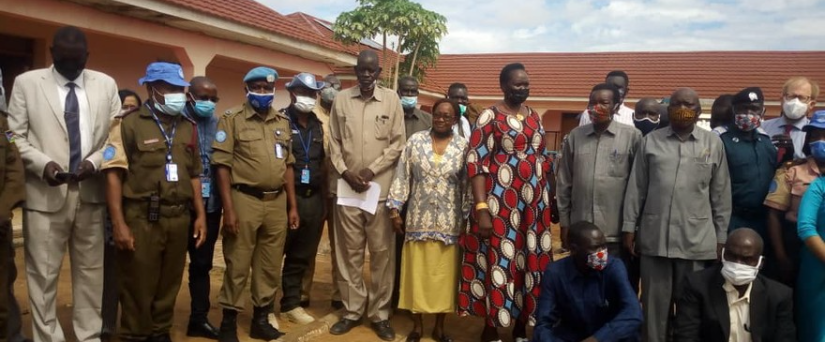The Joint Special Mobile Court established in 2020 to try pastoralists from Warrap State and their host communities in Western Bahr el Ghazal State on Tuesday resumed operations along the border of Gogrial West County in Warrap State and Jur River County of Western Bahr el Ghazal State.
The ceremony launching the resumption of the court’s operations was held in Gette town in Western Bahr el Ghazal State and was attended by the two ministers of local government from the two neighboring states.
John Yel Aleu, the President of the Joint Special Mobile Court said they will work for 21 days and urged the two communities to speed up the presentation of pending cases.
“In our mission as the joint mobile court, this is the third round since 2021 when we started in Roc-Roc dong and Mapel and came back to Tonj South and it is good that legal services reached the people unlike before when (legal) issues were addressed in Wau, Aweil, and Khartoum,” he said. “We are available here and we sit in any place, just come and open your cases and legal procedures will follow.”
“My colleagues, Judge Malong for Warrap and Judge William Kaya who did not come today is for Wau and if you want to appeal court rulings, just go ahead and you will still have legal support in state capitals,” he added.
Sam Mamuri, the UNMISS representative, said the presence of the mobile court will end impunity and lead to the communities living in harmony.
“I thank the community of Gette for hosting the court and the government officials for the support to the court to end impunity which will allow the peaceful coexistence between cattle keeping communities and the host or farming community,” he said. “This is not the first segment of the court but some days back you heard the good effects and feedback through judgments passed by judges. The respect for rule of law enables communities to live in harmony and the next is the way police should regulate the movement of cattle. With partners, we will ensure we support this process.”
Anei Arop, the Warrap State minister of local government, appreciated the judges and UNMISS for resuming the operations of the court and said it will clear a backlog of cases.
“The mobile court will solve problems facing our two communities and for us politicians, we have just witnessed it and will keep supporting it to ensure that cattle raiding and destruction of farms must end or be managed properly,” he said. “I know problems do not get finished but at least they will be reduced to a certain degree.”
Meanwhile, Ibrahim Suru, the Western Bahr El Ghazal State minister of local government, appreciated the role played by the court in combating communal crimes along the borders of the two states.
“I appreciate the role of the joint special mobile court in preventing the escalation of crimes committed by two communities and promoting accountability and confidence to end seasonal cattle migration violence,” he said. “Through justice, we can restore peace. The government will assist you so that peace prevails. I also appreciate UNMISS’ department of rule of law for the financial and technical support rendered to court.”



